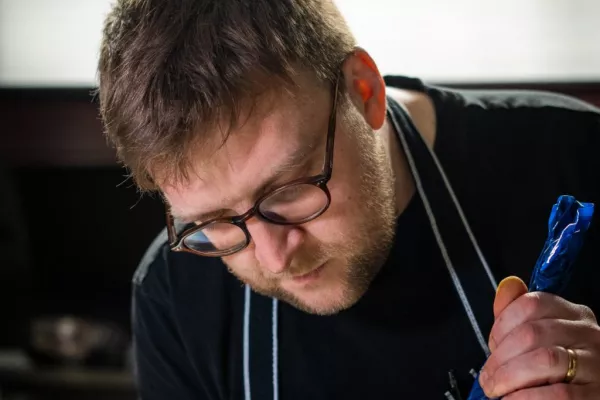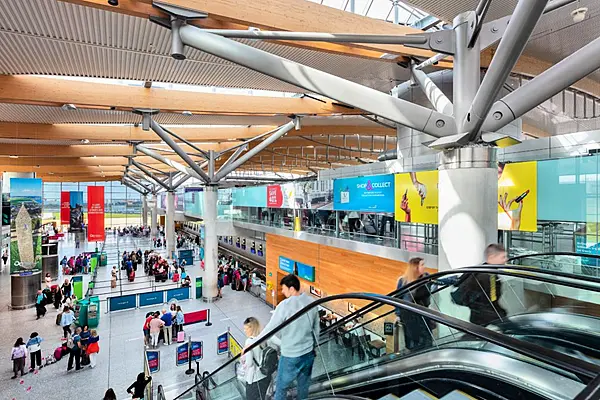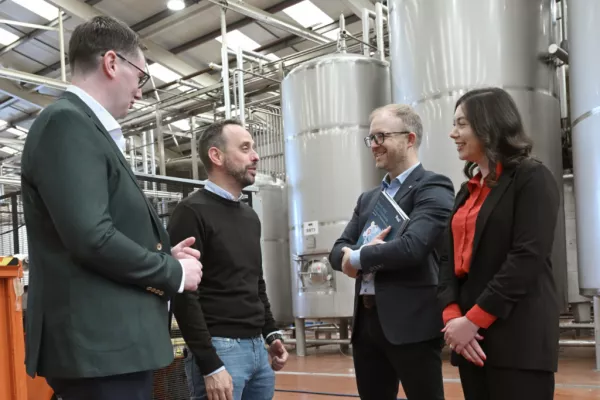Zero-waste cooking may sound daunting – even limiting – but Thomas Law, Michelin-starred head chef at the award-winning Prithvi, offers ways to maximise flavour and minimise waste.
Food waste within the hospitality industry carries significant, far-reaching consequences, impacting the climate, public health, and food security. To combat this pressing issue, a growing global movement for zero waste has emerged, with a keen focus on sustainable land use, a reduction in food waste, and environmental well-being.
In the hospitality sector – and particularly in fine dining, where indulgence and extravagance often take centre stage – it’s our responsibility to set an example with a commitment to zero- waste practices. As the executive chef at Prithvi, an award-winning restaurant in Cheltenham, I will be sharing insights into our zero-waste mindset, focusing on minimising waste while delivering a refined and sophisticated approach to South-Asian dining.
This article was originally published in the Winter 2023 issue of Hospitality Ireland Magazine, in December of 2023.
Preservation And Pickling
To extend the flavours of each season, we make good use of pickling and preservation techniques. For instance, during the early spring, we gather wild garlic and preserve it in oil, to be used in dishes throughout the year. This ensures that the essence of springtime remains present on the menu long after the season has passed, all while minimising food waste. As a chef, my philosophy is that nature’s seasonal offering can be fleeting, but our commitment to preserving it allows us to connect with the essence of each season, regardless of the calendar.
Maximising Vegetable Use
We ensure that vegetables, providing the foundations of many dishes, are always used to their full potential at Prithvi. Onions, for example, serve as the base for our sauces, whilst their skins are creatively repurposed to make burnt onion powder and trimmings find a second life as a flavourful stock, adding depth and complexity to our dishes.
Whole Cuts
Prithvi takes a holistic approach to ingredient utilisation. One notable practice is the use of whole cuts of meat, such as venison saddle. Rather than discarding trimmings, we transform these leftovers into a flavourful keema [minced- meat sauce], ensuring that no part of the cut goes to waste. Additionally, bones are artfully incorporated into rich sauces, creating an intricate web of flavours that elevates our cooking.
This commitment to whole cuts extends to fish and poultry as well, where every part, from the fillet to the bones, is used creatively. This practice is about respecting the whole of the animal and its offerings. There’s so much potential flavour in every part, so it’s a shame to waste any of it.
Eco-Friendly Packaging Practices
Our commitment to minimising waste extends to the restaurant’s packaging practices. Prithvi employs a minimalist approach, using only one roll of cling film at a time for rolling meat and fish. The majority of our storage is achieved through airtight containers, ensuring freshness while reducing single-use plastic waste.
This focus on eco-friendly packaging isn’t limited to the kitchen. We’ve also embraced sustainable practices in our takeout and delivery services, using biodegradable and recyclable materials.
The Art Of Dehydrating
One of Prithvi’s signature dishes showcases our expertise in dehydrating. Figs, soaked in a Marsala wine mixture, are dried and can then remain a part of our culinary repertoire for months. I like to think of dehydrated ingredients as a culinary time capsule, allowing them to capture the essence of a moment and savour it throughout the year.
Precise Inventory Management
One of our cardinal rules is to carefully check all orders, ensuring that we only purchase exactly what we need. This not only saves resources, but also ensures that ingredients are fresh and high quality. Ultimately, if we don’t use it, it’s better that the food is sitting on someone else’s shelf.
Our suppliers deliver daily when the restaurant is open, enabling us to procure precisely what is required for the following day’s menu, reducing excess inventory and waste. This meticulous approach to inventory management both minimises food waste and contributes to cost savings. Reducing waste is not just about being environmentally responsible – it’s also a matter of economic efficiency. We’re able to deliver exceptional quality while keeping costs in check.
Transforming Leftovers Into Staff Meals
Prithvi takes pride in ensuring that any food that doesn’t make it onto our customers’ plates does not go to waste. Any excess meat, fish or vegetable trimmings are transformed into nourishing staff meals, aligning with our philosophy of sustainability whilst maintaining cost efficiency – even pasta trimmings find a new purpose in the creation of fresh noodles for a special Saturday supper. For us, it’s a way for the team to bond and appreciate the value of every ingredient.
Understanding sustainability and waste reduction is one thing, but taking action towards it is another. It’s about cherishing every meal and every ingredient. From whole cuts to preservation and inventory management, I hope that both new and experienced chefs can be inspired to implement more zero-waste practices into their cooking, appreciating the art of culinary creativity while respecting the planet and its resources.









